

Managing diseases, with benefits for people, wildlife and domestic stock.
Domestic dog populations are reservoirs for viruses that occasionally spill over into the Ethiopian wolf population, killing many wolves over short periods of time. Rabies and canine distemper are major threats to Ethiopian wolves and also affect many people and livestock in Ethiopia.
One Health is an integrated approach based on the concept that the health of people, domestic animals, wildlife and ecosystems is connected. Embracing a One Health vision, we work with many partners to develop solutions to the threat diseases pose to wolves.
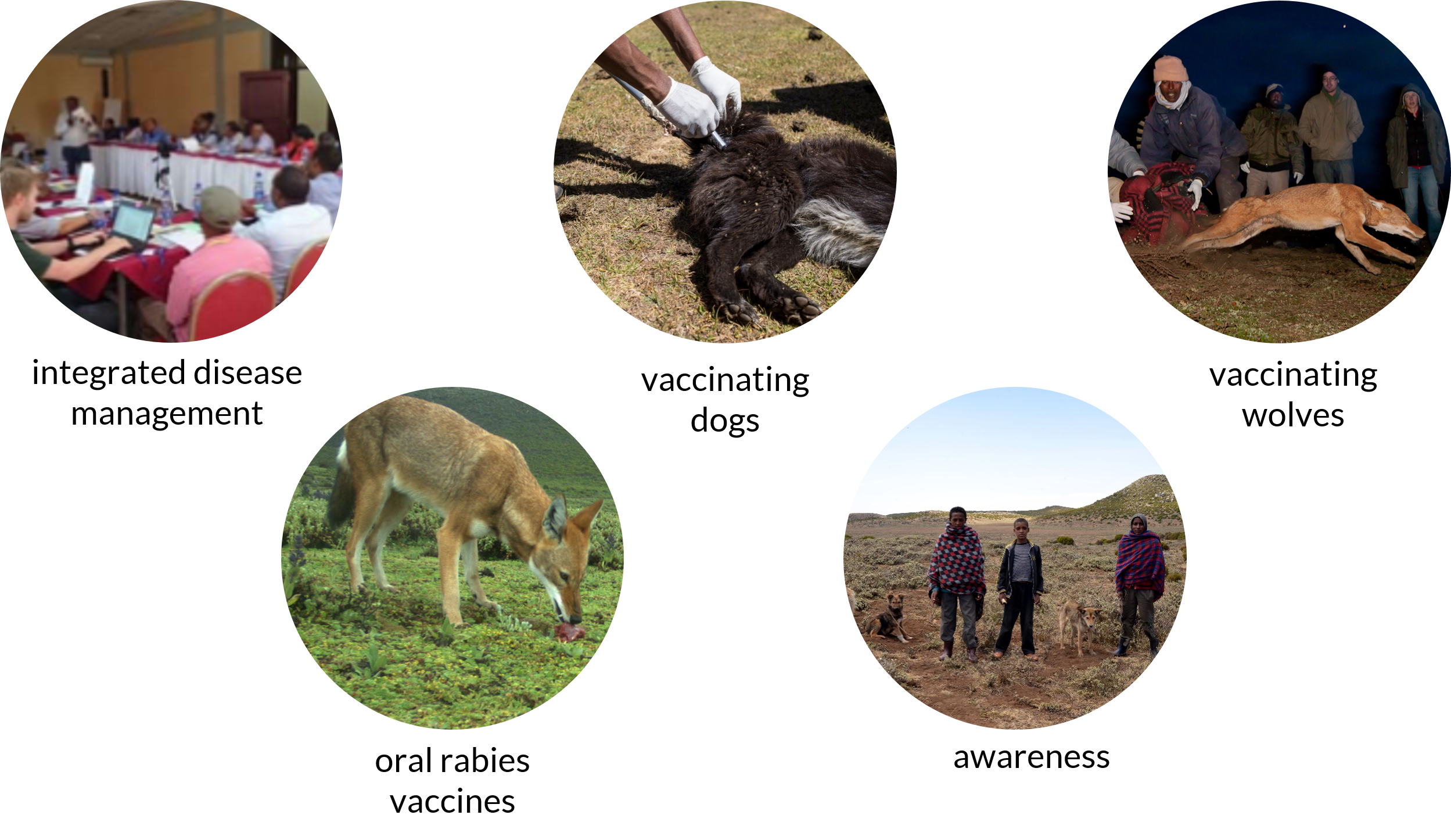
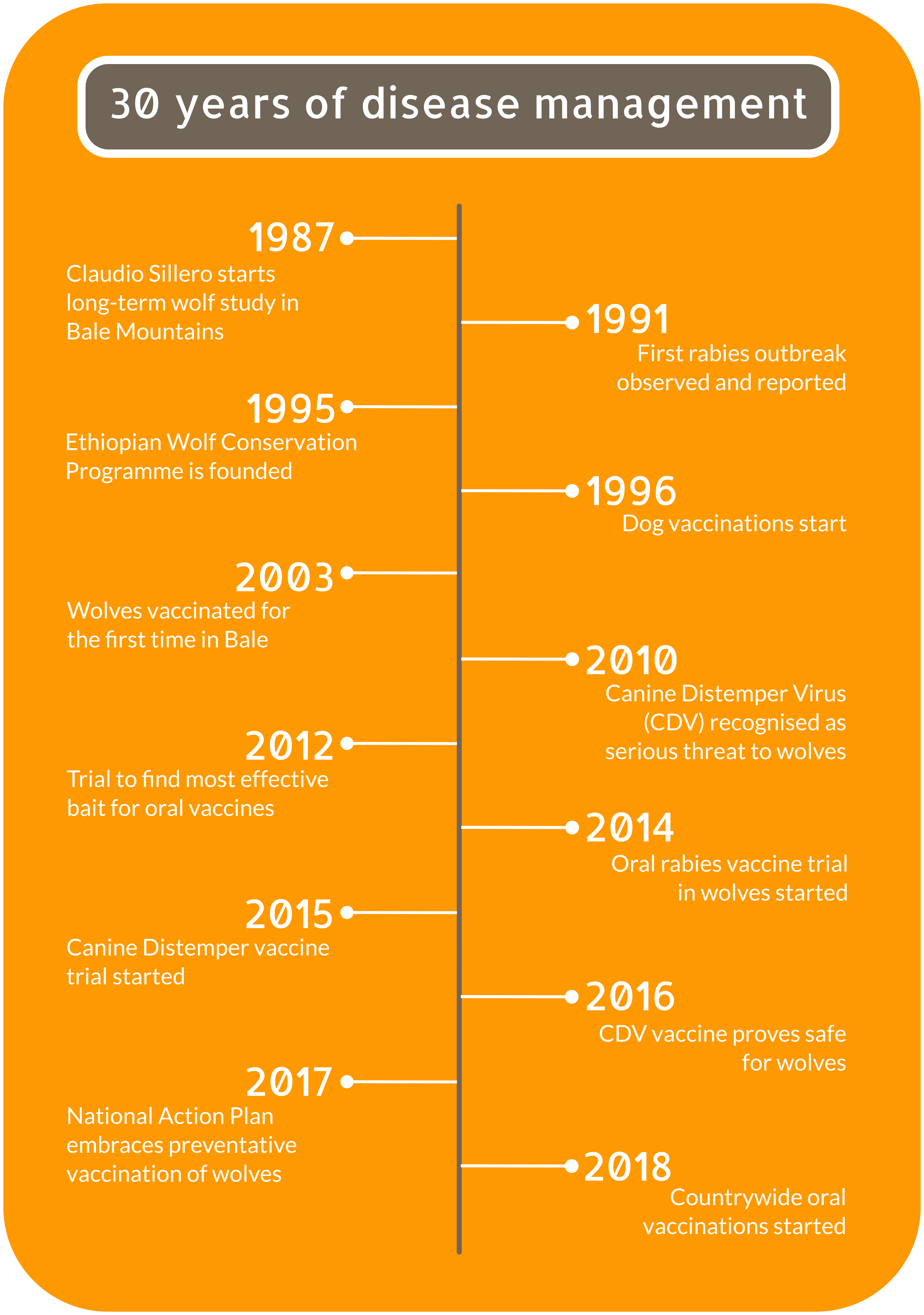
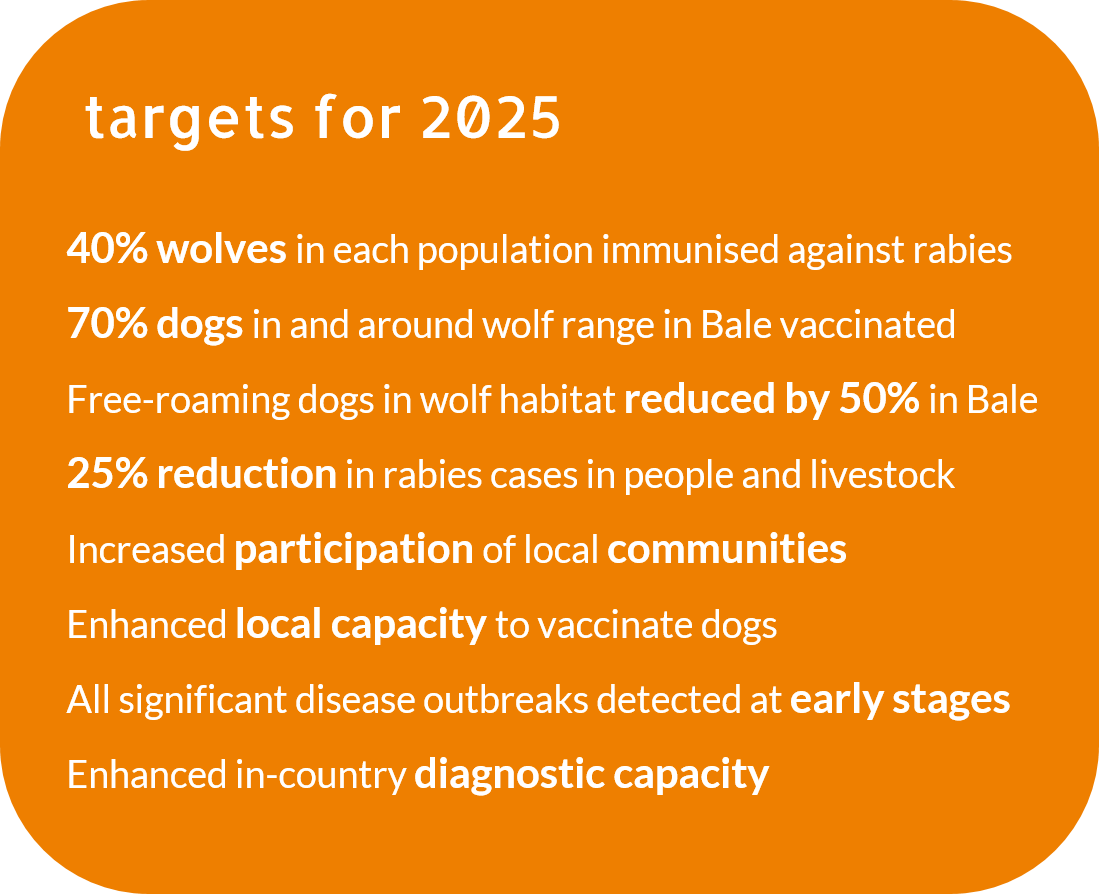
Integrated Disease Management
By involving all partners and affecting policy we can achieve effective long-lasting management of the diseases threatening Ethiopian wolves. For many years we have promoted an integrated disease management strategy for rabies and canine distemper with numerous key partners, from the Ethiopian Wildlife Conservation Authority and protected area managers, to local governments and communities.
The plan, backed up as part of the National Action Plan for Ethiopian wolf conservation, identifies four main areas of action:
• controlling diseases in reservoir dogs,
• reducing dog-wolf contact,
• increasing capacity to detect outbreaks
• vaccinating wolves as a preventative measure and, (as a last resort)
• emergency vaccination of wolves in response to a confirmed epizootic.
Vaccinating dogs
Domestic dogs are kept by many people in Ethiopia’s highlands, often to guard livestock. Some of these dogs roam freely and come into contact with wolves.
We routinely vaccinate over 3,000 dogs a year against canine distemper and rabies in the settlements around wolf habitat in the Bale Mountains, to reduce the risk of them transmitting the virus to Ethiopian wolves, livestock and people.
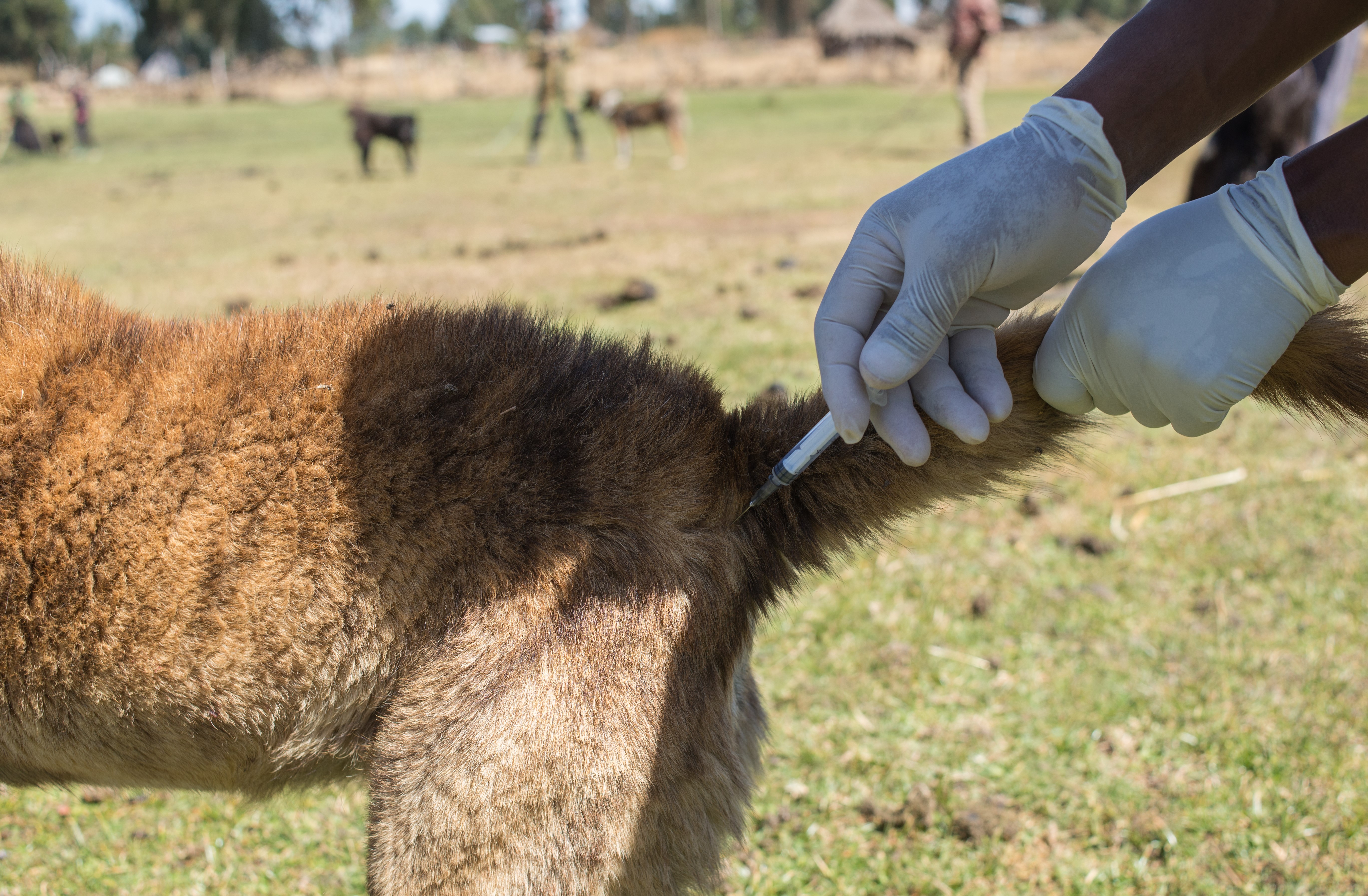
Awareness & alert networks
We raise awareness of the threat of diseases and their treatment among local communities, while promoting responsible dog ownership, including health care and control of dogs’ movements.
We provide training and technical manuals for local veterinary staff and develop Disease Alert Networks to improve the ability to detect, diagnose, and contain outbreaks in wolves and dogs.
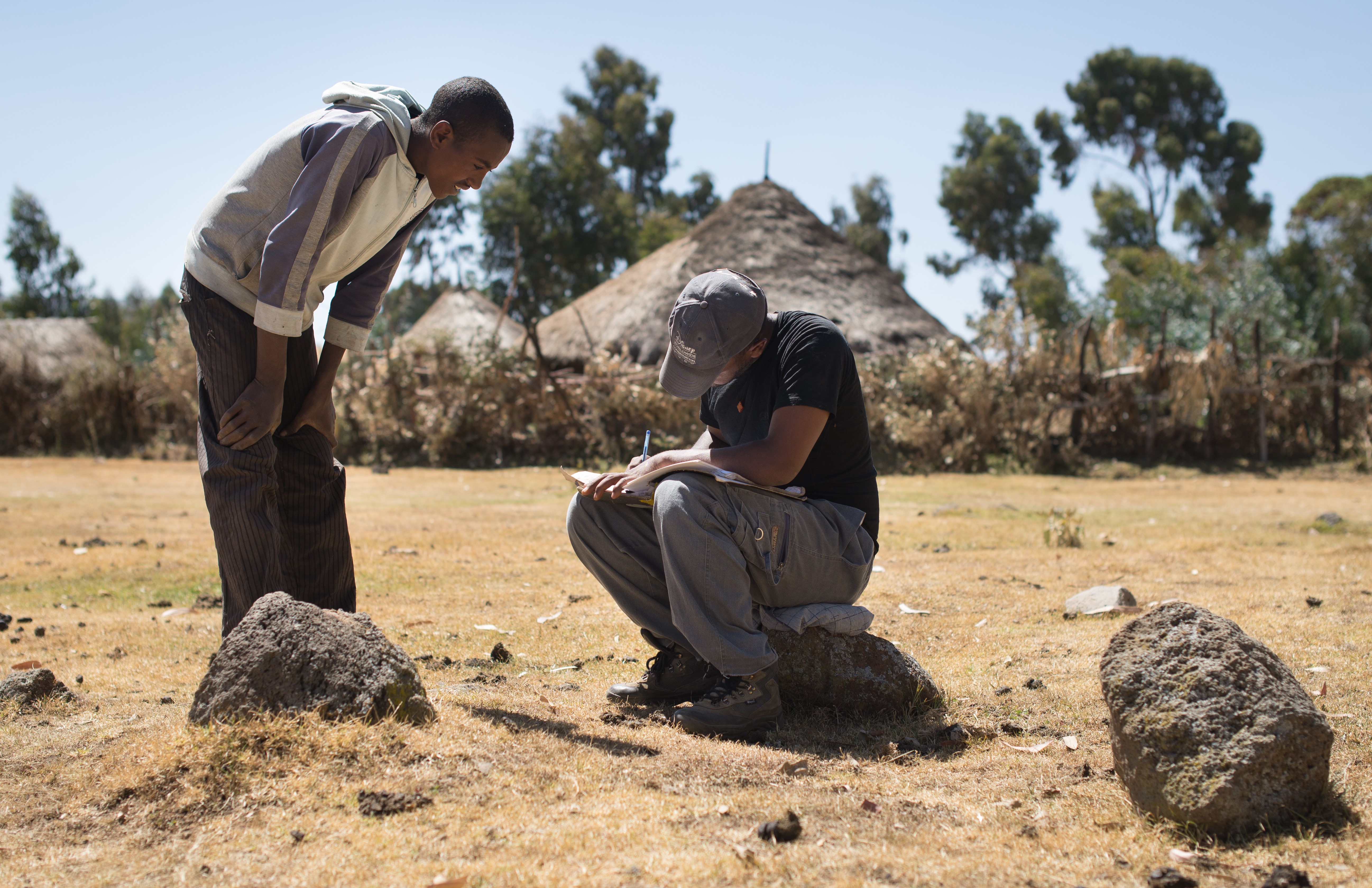
Vaccinating wolves
When the monitors detect dead wolves, they collect samples which are quickly tested.
Positive results for rabies trigger a wolf vaccination response around the focus of the infections. In this way we protect them from contracting the illness and contain the outbreak. A trial of a canine distemper vaccine in the wolves is well advanced - read more here.
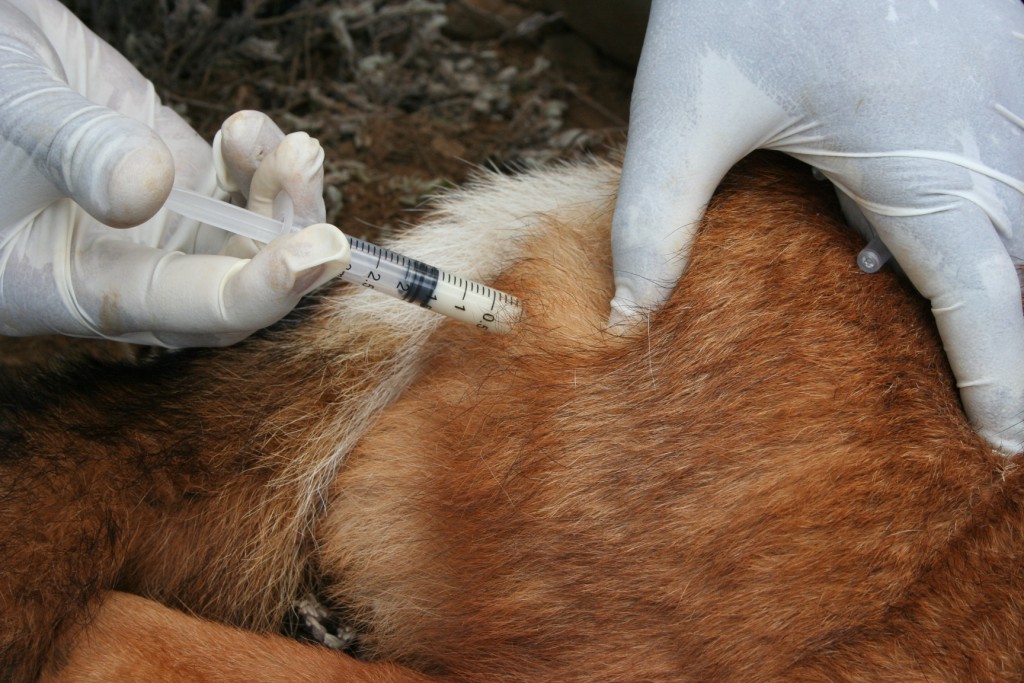
Oral rabies vaccines
Thanks to our recent research, including a successful field trial, we can now vaccinate wolves against rabies orally with handling them and in a preventative way.
An edible vaccine sachet is hidden inside a piece of meat and placed in the field where a wolf is likely to find it. Compared to injectable vaccines, oral vaccination is cheaper, less stressful for wolves, and easier to scale up.
Read past blogs about testing baits, the first oral vaccinations and vaccinating during Covid-19